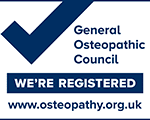
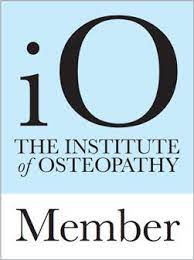

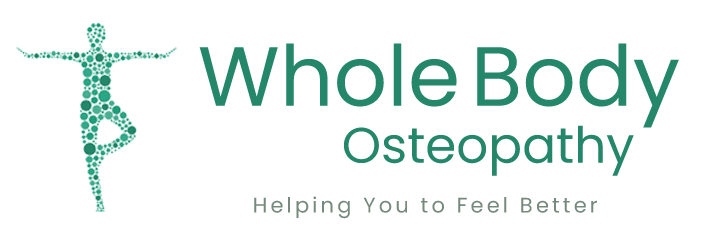
We know how frustrating sports injuries can be, and we aim to restore normal function and get you back to your chosen activity as quickly as possible.
We have treated athletes ranging from those new to sport through to Paralympians. Using proven osteopathic techniques, we can evaluate, treat and rehabilitate sports injuries quickly and effectively.
We are an experienced and long-established osteopathy clinic across three practices in Looe, Saltash and Millbrook, providing full sports injury clinic services. Our expert practitioners are easily within reach from Plymouth, Torpoint, Tideford and Kingsand, and booking an appointment is quick and simple with our online booking system.
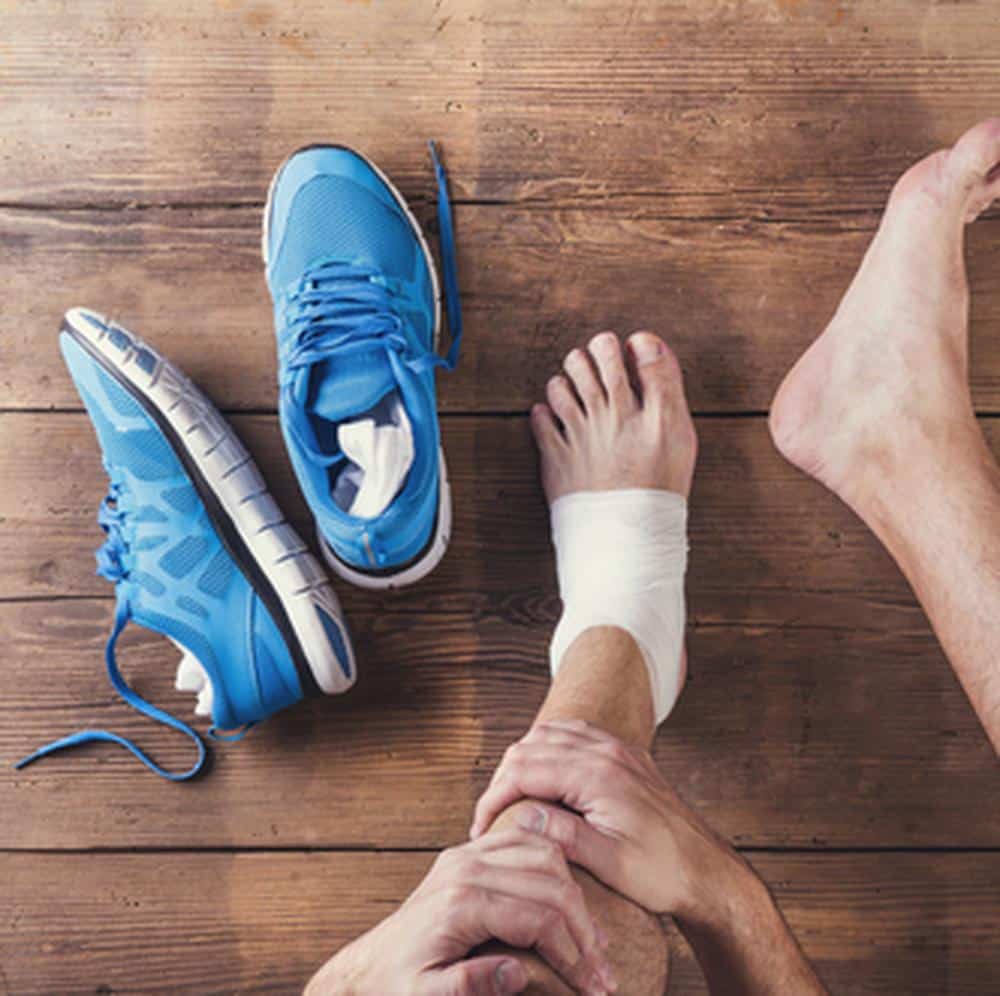
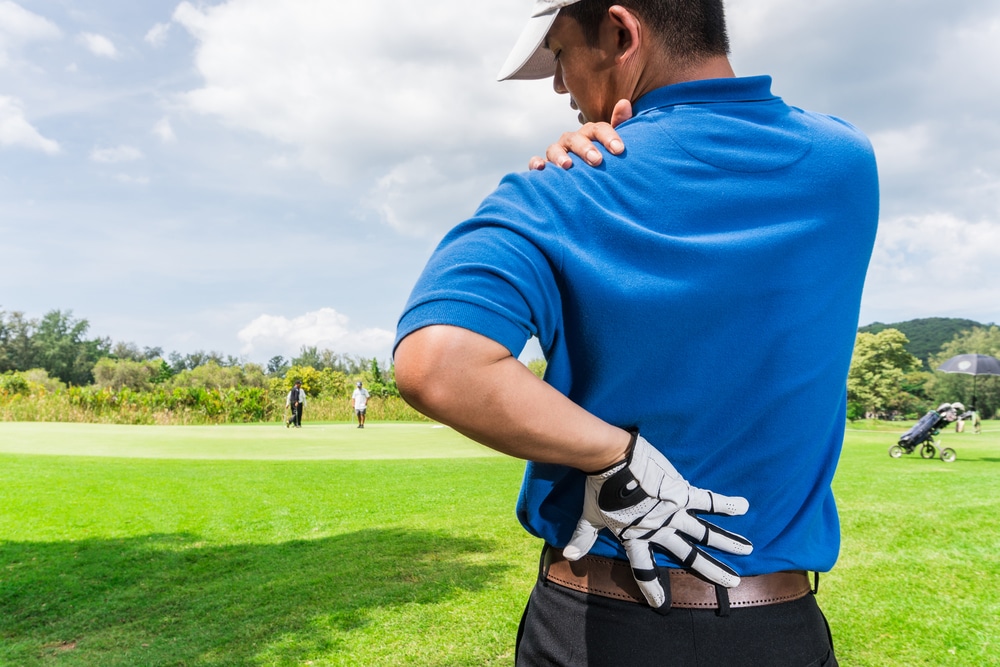
Broadly, sports injuries are divided into two categories: acute and chronic. Acute injuries occur suddenly, and are usually caused by a specific trauma to the body part. Chronic injuries tend to build up over time and last much longer. They are normally caused by repetitive strain.
Generally speaking, there are five different kinds of sports injury:
Osteopathy is suitable for treating most injuries which do not involve broken or dislocated bones and joints. Osteopaths are trained primary care practitioners who can refer you to the appropriate service if osteopathy is not suitable for your particular injury.
Registered with the General Osteopathic Council and Institute of Osteopathy
We treat many different sports injuries. Some sports are obviously more susceptible to certain injury than others, for example runners are more likely to suffer from problems with the feet and knees, whereas those playing racket sports are more likely to suffer from repetitive elbow pain.
The most common sports injuries we treat at the clinic include:
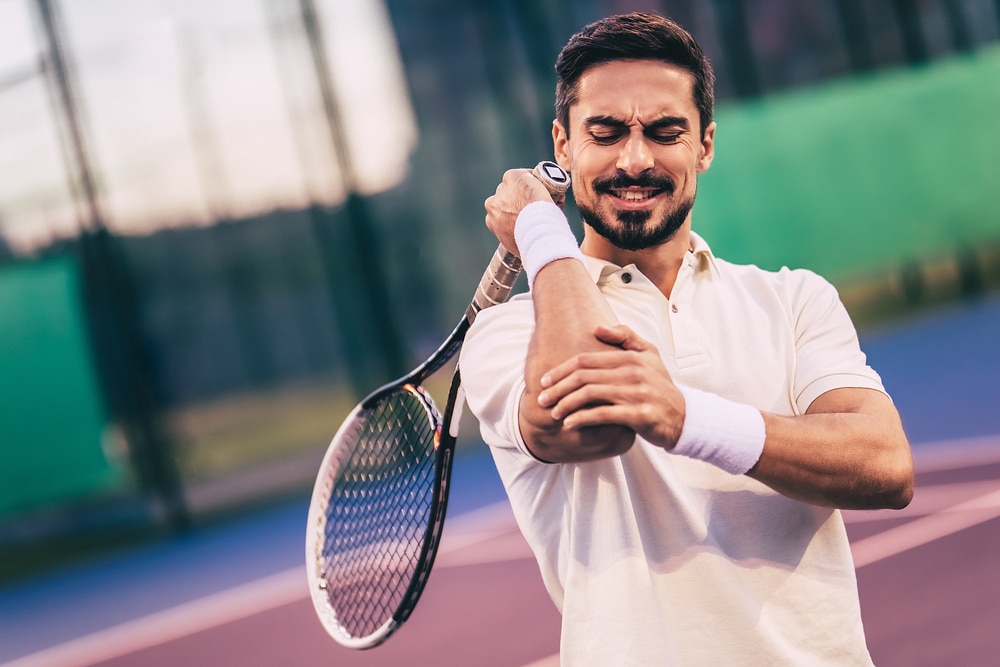

Sports injuries can occur from a variety of issues. Chronic issues tend to develop from poor technique, overtraining or overuse, especially when beginning a new sport or training at a more intense physical level, and failing to adequately warm up and stretch before exercising.
Acute injuries tend to occur as a result of a sudden movement or trauma (e.g. a bad fall, or collision with another player). Strength training and conditioning can make the body more resilient and less susceptible to acute injury, though in any sport there is always an element of risk.
Your osteopath will help to not just treat and rehabilitate your injury, but to guide you in warm ups, strength conditioning and similar activities that can help you to stay injury-free in the future.
We have two welcoming and conveniently situated clinics
Many people find the RICE protocol – Rest, Ice, Compression and Elevation is helpful for sprains and strains. Many physical therapists now alternatively recommend the more participative PEACE and LOVE approach.
Resting the body and allowing its natural healing mechanisms to function is still an important part of this approach, but there is a greater emphasis on understanding your injury, and on rehabilitation through exercise.
This gives you a more active and participative role in your recovery, and allows your osteopath to be of greater use, not just treating the injury directly but helping you to self-treat and to understand the mechanisms of recovery and rehabilitation.
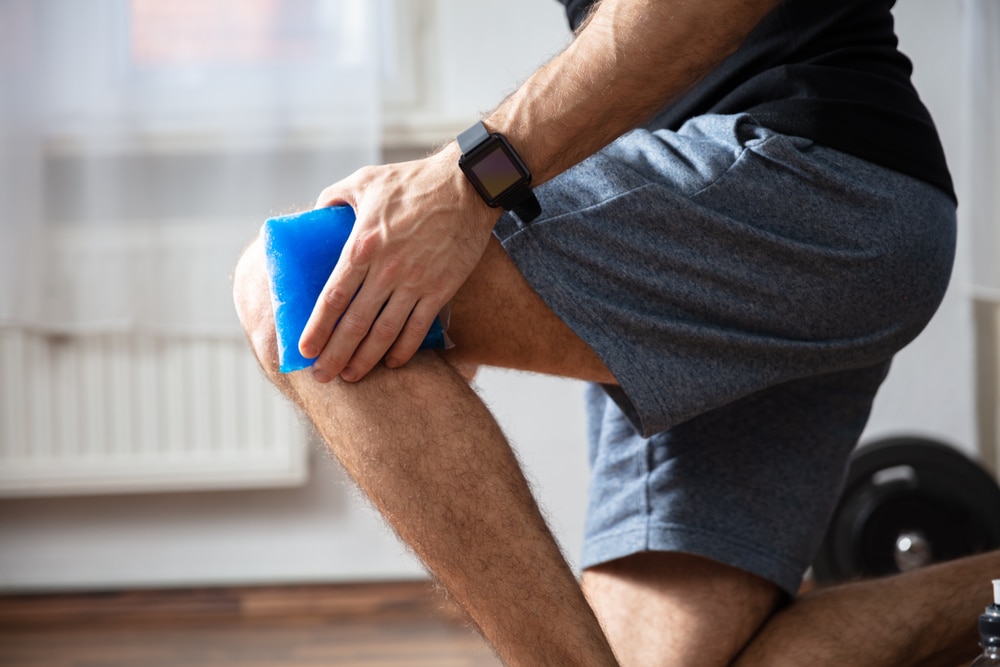
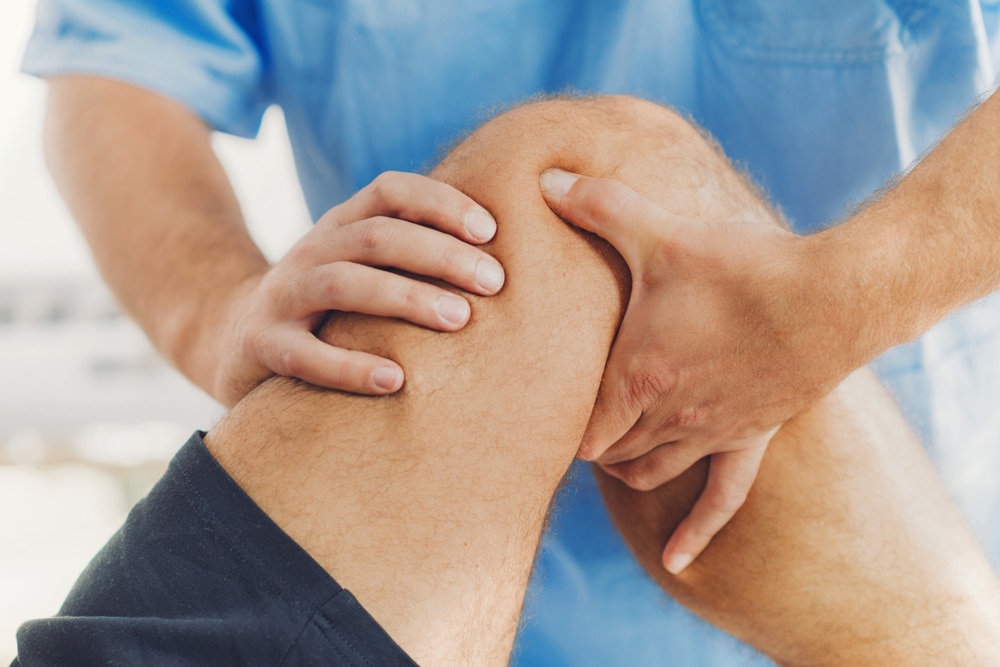
Osteopathy is a holistic and non-invasive hands-on therapy that takes a whole-body approach in getting to the root of the problem, treating any structural imbalances and aiding the body’s natural healing processes to get you back to normal function as quickly as possible. Its focus on the musculoskeletal system makes osteopathy an ideal treatment for many minor sports injuries, and osteopaths are also trained First Contact Practitioners, able to accurately assess your injury and refer you to another service if we are not the most appropriate treatment for you.
Osteopaths use a range of physical therapy techniques including direct spine and joint manipulation, soft tissue work such as sports massage and myofascial release, stretching, mobilisation, and advice on exercise, self-treatment and lifestyle factors. Osteopathy is one of the 14 Allied Health Professions, and many osteopaths also work in musculoskeletal departments of the NHS.
You can read more about osteopathy on our osteopathy page, and if you have any questions please don’t hesitate to contact us.


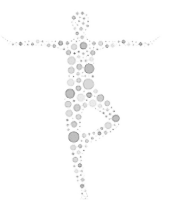




The amount of time needed to rehabilitate an injury and return to your sport varies from person to person and injury to injury, and your osteopath will be able to guide and advise you on gradually loading the area being rehabilitated and returning to your sport at the correct pace.
The process of rehabilitation can be broken down into various stages. To begin with rest and protection is essential, and treatment with physical therapy if the injury is likely to last more than a few days. As the healing process takes place, activity can gradually be reintroduced, including gentle strength work and reloading of the joint, muscle or ligament. This then leads to sport-specific conditioning, focusing on the particular movements of your sport, before returning fully to your chosen activity.
We take a collaborative and person-centred approach, involving and working with you at every step of the way on your recovery from injury.
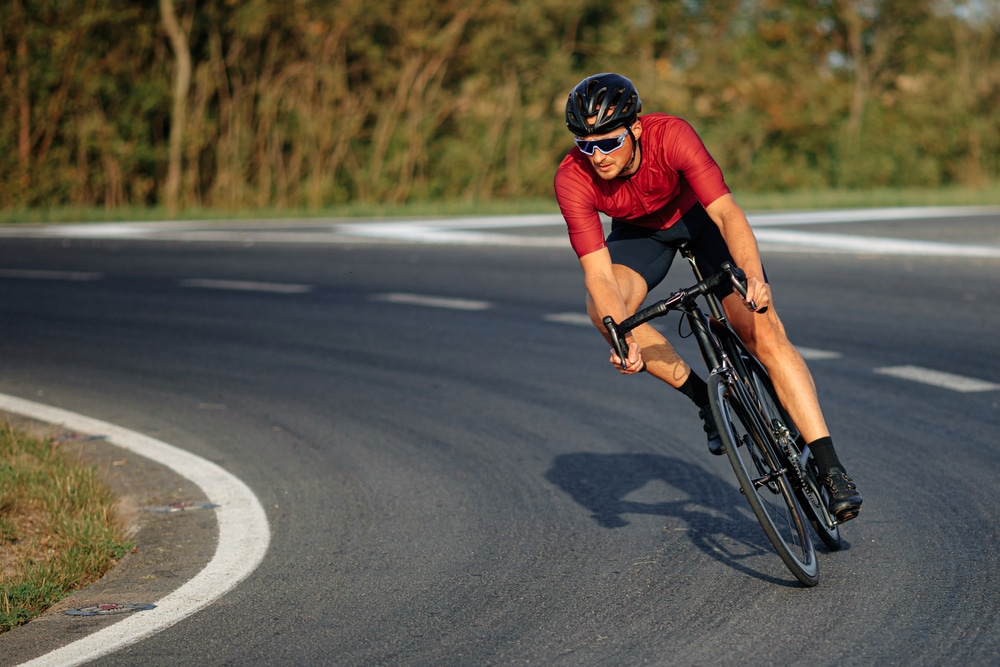
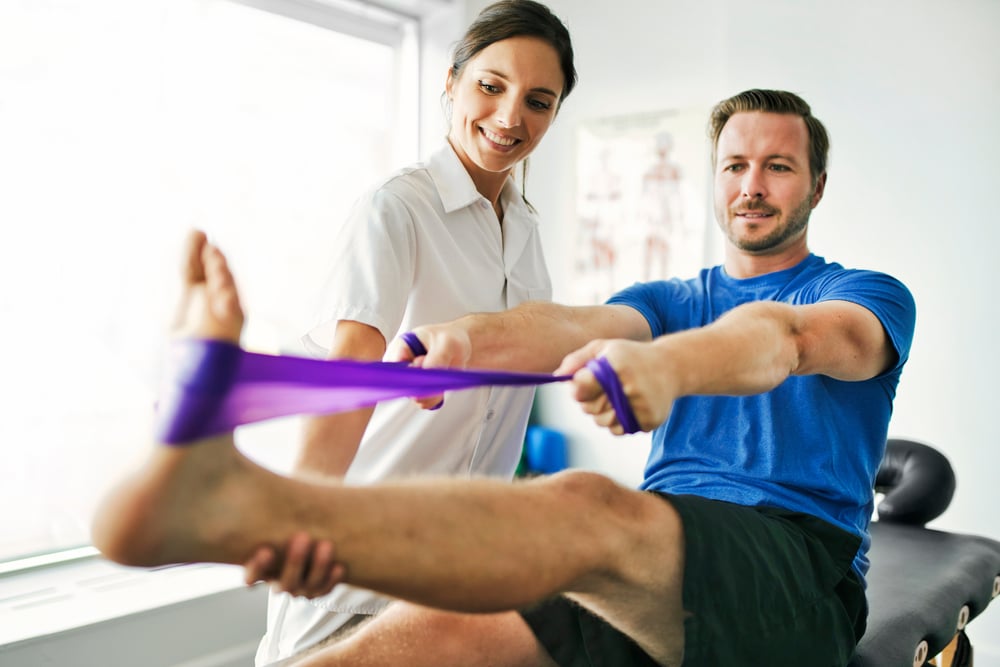
The final stage in rehabilitation is to avoid further injuries. Whilst there is always a risk of injury involved in any sport, we will aim to do whatever we can to prevent you from becoming injured again.
This may include giving you advice on stretches and exercises to keep the affected area strong and protected in future, or to increase the mobility and flexibility of the joints to make them less likely to be pushed outside of their comfortable range of motion.
We have worked with a wide range of people at all levels of sport, from beginners to Paralympians. We will ensure you receive all the advice and support you need to enjoy your sport, and to remain injury-free wherever possible.
Osteopaths are able to help with a wide range of complaints including aches and pains, minor injuries, and chronic conditions. If you’re not sure whether we can help in your case, please contact us for a free telephone consultation.
We are a well-established clinic with a welcoming and person-centred approach. Our osteopaths are qualified and experienced, and fully registered with the General Osteopathic Council and Institute of Osteopathy. Booking is easy using our online system, and we normally have appointments available within 24-48 hours.
Our Looe osteopathy clinic is accessible from Liskeard, Polperro and Menheniot, while our central Saltash practice serves areas including Plymouth and Tideford comfortably. Our Millbrook Clinic, close to Torpoint and the Rame Peninsula, is a peaceful clinic with easy parking.
At your first appointment your osteopath will give you time to explain your symptoms and carry out a full examination both of the affected area and of your general body mechanics. You’ll receive a professional diagnosis and explanation of the best treatments for you, and will normally notice an improvement from the first appointment.
Our friendly staff are here to help. If you have any questions or concerns, please don’t hesitate to contact us.


Physiopedia overview on sports injuries, with more detailed medical information
NHS information on sports injuries
Factsheet on the psychological factors of recovering from injury
A good overview of types of sports injuries from the National Institute of Arthritis and Musculoskeletal and Skin Diseases
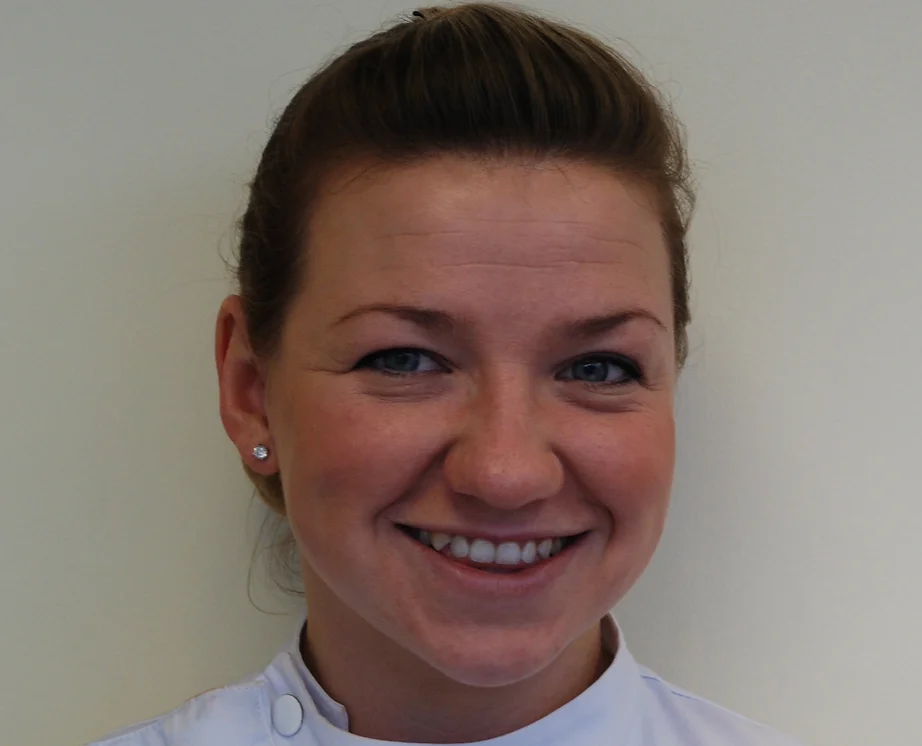
The information on this page has been reviewed for accuracy by Yvonne Cosbie BOst BSc, osteopath and clinical director, Whole Body Osteopathy.
Web design by Market Your Clinic Online